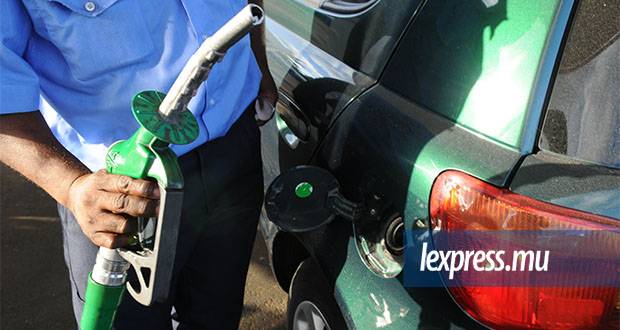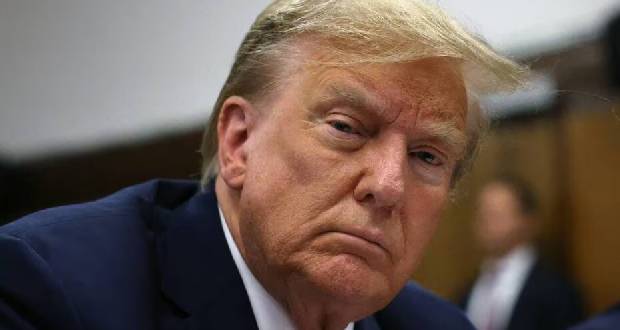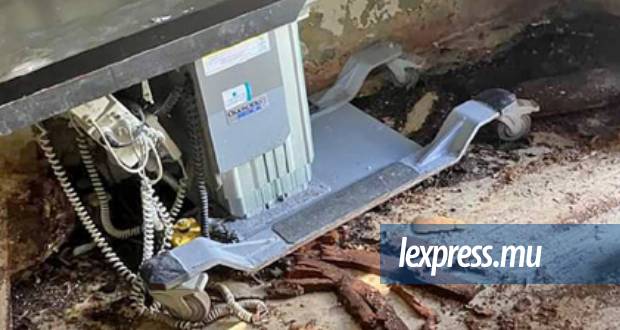Publicité
Covid-19: The final straw for a cash-strapped company
Par
Partager cet article
Covid-19: The final straw for a cash-strapped company

Following the collapse of South African Airways this week, Air Mauritius too has gone under with its own board putting the national carrier into voluntary administration for the first time in its history, leading to the prospect of massive lay-offs at the national airline. Is this the end of Air Mauritius?
The board of Air Mauritius met on Wednesday morning and decided to put the national airline into voluntary administration. According to a statement from Air Mauritius, due to travel restrictions put in place and the grounding of its fleet due to the Covid-19 pandemic, the airline has seen “a complete erosion of its revenue base” leaving it unable “to meet its financial obligations in the foreseeable future”. This is an unprecedented step and sees the airline putting itself into voluntary administration for the first time in its history. So what does this mean?
“The decision to go into voluntary administration cannot be laid solely at the door of Covid-19. There have been issues within Air Mauritius and its management for a long time,” former Tourism Minister Anil Gayan tells Weekly. Indeed, long before Covid-19 ever emerged, Air Mauritius was already deeply in the red and the pandemic merely added to the troubles of an already tottering airline. Since 2015, the airline took a number of decisions that put immense pressure on its finances including the much-publicised decision to start an Asia-Africa Corridor with Changi airport in Singapore that did not pan out. Then the airline decided to go on a spending spree to buy eight new aircraft. In the financial year ending in March 2019, Air Mauritius spent 15.9 million euros just paying the instalments on its new planes.
“Since 2015, the airline took a number of decisions that put immense pressure on its finances including the much-publicised decision to start an Asia-Africa Corridor.”
“Even before Covid-19 came along, the financial situation of Air Mauritius was not too good,” economist Pierre Dinan tells Weekly. “This is the situation that many heavily indebted companies will find themselves in now.” Just how deep the airline was in the red can be seen from the fact that for the year ending in March 2019, it posted a loss of 21.7 million euros. Between the start of 2019 until September that year, another loss of 22.6 million euros was added on the books, with only a mere 7.7 million euro profit to offset all of that in the last quarter of 2019. By the start of 2019, the airline already knew it was in trouble and announced that its business model was “no longer working”. In January this year, the government decided to appoint the CEO of Mauritius Telecom and government insider Sherry Singh to head a ‘transformation committee’ in a much-publicised effort to turn the fortunes of the airline around. At the beginning of March, its CEO, Somas Appavou, abruptly quit to take up a job at the International Air Transport Association (IATA). However, all this came to a screeching halt with Covid-19.
The IATA has warned that the pandemic could end up costing the global aviation industry as much as $250 billion in 2020. This was the final straw for an already cash-strapped Air Mauritius. “Since flights were stopped due to Covid, there has been no income coming in,” says economist Eric Ng. This poses a problem. According to section 162 of the Companies Act, a director of a company that cannot pay back its debts is bound to call a meeting of the board and decide to put the company into administration, or else the director himself becomes liable for the company’s debt. This left Air Mauritius with only two options: ask the government for a letter of comfort indicating the government’s willingness to pump money into the airline (as it has in the past both for Air Mauritius as well as other parastatals struggling with debts such as the Central Electricity Board (CEB) and the Central Water Authority (CWA) to help keep its creditors at bay or, failing that, put itself into administration in the hope of buying some breathing room from its debts. “Presumably, the government refused to provide such a comfort letter to the airline indicating its willingness to help, which is why it has ended up in administration,” argues Xavier-Luc Duval, former finance and tourism minister who heads the Parti Mauricien Social Démocrate.
What does voluntary administration mean?
Does it mean the end of Air Mauritius? There is a difference here explains Reza Uteem, MP for the Mouvement Militant Mauricien and a lawyer specialising in company law. On the one hand, companies are taken to court by the creditors and the court decides to declare a company bankrupt. On the other, voluntary administration is a company putting itself under an administrator which then has to meet with its creditors to try to get a deal such as trying to convince them to take a haircut on their debts, waive interest payments or restructure the debt payment. “Air Mauritius will continue to run and operate except now it will be operating under the direction of its administrator who will call the shots,” Uteem tells Weekly. “It is only if the creditors are unable to reach an agreement with the airline that it can lead to its liquidation and the selling off of its assets,” says Dinan. “We are far from that point yet.” In other words, Air Mauritius is still there.
The opposition parties want the government to bail out the struggling airline. “We need to recall parliament to attach companies such as Air Mauritius from attack by creditors,” Uteem argues. The airline will definitely need a bailout from the government, according to Ng, but he adds this will be a time for tough decisions about the airline. Uteem warns against the government using this to sack staff from the airline.

Conflict of interest?
One thing that’s raising eyebrows is not simply the fact that Air Mauritius has admitted it can no longer pay its bills, but rather the administrator that it has chosen for itself. On Wednesday, the airline announced that it was appointing Sattar Hajee Abdoula, CEO of the accounting firm Grant Thornton and his associate, Arvind Gokhool, as administrators for the airline. Boolell has been quick to point out the problem. On the one hand, Abdoula will be negotiating with creditors of Air Mauritius to ease the debt burden of the airline, while at the same time heading one of the airline’s biggest creditors, the State Bank of Mauritius. Earlier in March, the government appointed Abdoula as head of SBM Holdings Ltd. “There is a clear conflict of interest here,” Boolell comments. “Who will he really represent? Air Mauritius or the SBM?”
For Duval, the problem goes much further than that. Air Mauritius going into voluntary administration means putting the airline at the mercy of its creditors. They can approve or reject whatever deal Abdoula offers them and, according to section 219 of the Insolvency Act, the creditors can remove Abdoula himself as administrator and appoint someone else. “The problem is not just a conflict of interest but the fact that the future of the national airline has just been put into the hands of a small to medium-sized accounting firm with little clout and few resources. Never before has Air Mauritius been in this position,” laments Duval. Only time will tell, he adds, “whether the government’s decision to take the airline down this route was wise or not”.
It’s no surprise then that the wider tourism sector is spooked by Air Mauritius being put into this position. “This news is extremely serious both for Air Mauritius and the country,” Jean-Michel Pitot, head of the Association des Hôteliers et Restaurateurs de l'île Maurice (AHRIM) tells Weekly. “We hope that the administrators will be able to take proper decisions to allow Air Mauritius to get back on its feet.” Tourism Minister Joe Lesjongard, when contacted by Weekly, said, “I am waiting to get all the facts and information before I make a statement on this.” It’s clear what has everyone nervous. “Tourism is an important pillar for Mauritius and approximately 100,000 families in the country rely on it,” says Gayan. Take Air Mauritius – which filled 1.7 million passenger seats in 2018/2019 – out of the equation and the industry suffers. “It’s the only airline offering direct flights to anywhere,” Ng explains, with Duval adding that it’s the only airline servicing Mauritius on new routes where other airlines don’t want to fly. But there is a memory behind these worries: Air Mauritius itself started flying in the 1970s to make up for European airlines pulling out. That memory has not faded. “We cannot just rely on foreign airlines. What if they stop coming here? Air Mauritius has been a kind of safety net for the tourism sector in that regard,” concedes Dinan. “Now is the time to re-engineer Air Mauritius more efficiently. It’s the time for just economics, not politics in the airline.”
With the airline on its knees and unable to pay its bills after decades of politicking within the national carrier, Covid has laid everything bare.
New!
With https://kiosk.lasentinelle.mu/ and the Kiosk LSL app, stay up-to-date from home with just one click. Find Weekly, l’express and all your favourite newspapers and magazines as well as publications from the Indian Ocean, France and Africa on the same digital platform.
Publicité
Les plus récents






